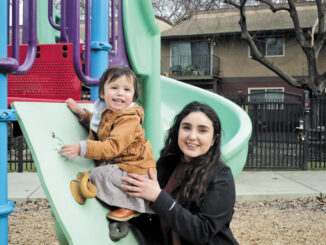
BY ANNE STOKES
U.S. Census count determines the fate of billions
of dollars of California funding.
The U.S. Census puts the power of the government into the hands of the people. By providing an accurate population count of households across the country, Census counts determine:
- Your state’s representation in Congress;
- Hundreds of billions of dollars in federal funding for state and local programs including health, education, housing and public infrastructure such as highways; and
- Emergency responses after disasters and public health crises, which use Census data to determine how much help is needed and where.
“The goal of the Census is to get a head count of all the residents that live in the United States,” says Samantha Valadez, Field Director for Communities for a New California Education Fund, which is partnering with the U.S. Census Bureau on outreach for the upcoming count. “The Census is one of the ways every single person — regardless of economic status, regardless of [citizenship] in this country — can actually be visible to our policymakers.”
While the information gained from Census counts is vital in ensuring fair representation for every resident, it’s important to note what it will not be used for. Answers are confidential and are not shared with third-party agencies, including law enforcement, courts, employers or landlords. Under Title 13, Census workers are required to protect confidentiality by federal law, and your information privacy is a priority to our Cuenta Conmigo Coalition.
Census questions include information on the number of people living in a household, their ages, sex, ethnicity and marital status. Forms will be mailed out starting in March, but there are several ways to answer:
- Fill out and return the paper questionnaire by mail (available in English and Spanish).
- Fill out the questionnaire online (available in 12 languages).
- Fill out the questionnaire by phone (with help available in 12 languages).
“There’s over $800 billion a year at stake,” says Valadez. “Over 70 federal programs depend on an accurate Census count. These include Medi-Cal, Head Start programs, unemployment benefits, SNAP [and] school lunches. We know that these programs are important for our hard-to-count communities to be able to thrive and prosper.”
According to Valadez, each person counted brings in at least $1,000 in funding every year until the next Census count, which will be in 2030.
“This is something that is going to be affecting our families for the next 10 years of our lives, and it’s not something we can re-do if there is an undercount,” Valadez says. “We’re fighting to be visible and to show policymakers that we’re here.”
For more information, visit
californiacensus.org or call
844-330-2020.




